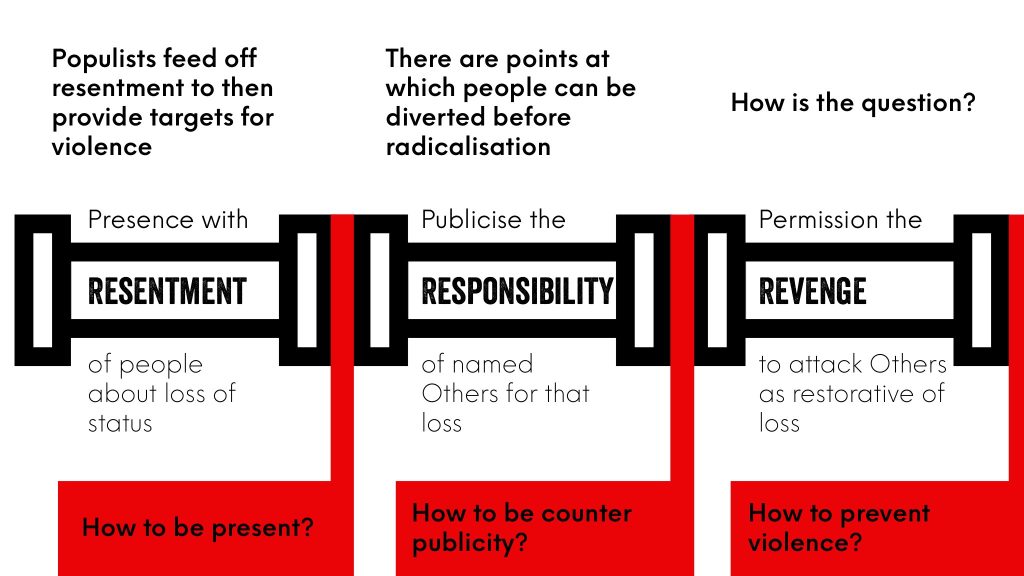
Having finished Disaster Nationalism (which I’d recommend as way of framing and phrasing the authoritarian populist attacks on democracy), I wonder about how we can intervene and divert people off the radicalisation pipeline of Resentment, Responsibility and Revenge.
Civic Assemblies?
From experience lately with civic assembly and deliberation methods, I’d say they could be used in the Resentment stage. However, it would require politicians and local councils taking action by providing space and turning up. Many people feel resentment because they are not taken seriously and not listened to at all. They are unable to listen or think of other topics until they have time to unload what is occupying their minds now. Why should they listen if they are not heard?
What an assembly also could do is act earlier in blocking off the populist pathways to naming blaming Others as responsible. Take people seriously and show where their resentment is actually true. Often it is systemic and that vastness is hard to comprehend or process as being responsible. Blaming communities or groups of people is about the scale people can understand and also the scale and form that they can imagine punishing. If the problem is systemic then it needs naming and it also needs saying that revenge is not an option. You cannot attack the climate. You cannot attack war-based instability and refugee immigration. You can recognise that they exist.
The populist pathway is clear: resentment for loss is aimed at named groups of Others and restoration can come thru permitted abuse and violence.
If we can pull some people away from this path, then it is a success. More that it is done in neighbourhoods and communities, more it works.
At least, we should try. I hope to do some work in 2025 on this and I’d love to have some companions.